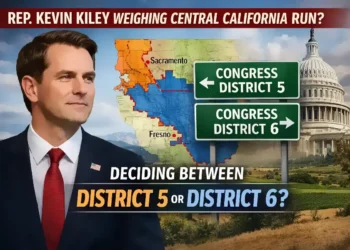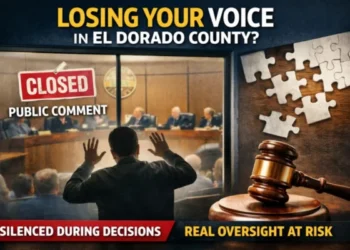
Cris Alarcon. El Dorado County (Feb 6, 2024) – In the intricate tapestry of American governance, the terms “Republic” and “Democracy” are frequently invoked, often with varying degrees of precision. Let’s delve into the nuances of these two political frameworks, examining their characteristics, strengths, and potential pitfalls within the context of the United States.
Republic: The Sentinel of Representative Governance
Key Tenets:
- Representation: At its core, a republic emphasizes representative governance. Citizens elect representatives to make decisions on their behalf, ensuring a more practical approach to the governance of a large and diverse nation.
- Rule of Law: Republics, including the United States, pride themselves on the supremacy of the rule of law. Legal frameworks guide decision-making processes, promoting stability and consistency.
- Limited Government: A republic often embraces the principle of limited government, restricting the authority of the state to protect individual rights and prevent potential abuses of power

Andrew Breitbart with my wife .
Strengths:
- Stability: The representative structure fosters stability by promoting deliberation and preventing impulsive decisions.
- Protection of Minority Rights: Republics are designed to safeguard the rights of minorities, ensuring that the majority does not trample on the interests of less-represented groups.
- Long-Term Vision: Elected representatives, serving fixed terms, can adopt a more strategic, long-term perspective in addressing complex issues.
Democracy: The Voice of the People
Key Tenets:
- Direct Participation: In a democracy, citizens have a more direct role in decision-making. They participate in various processes, such as voting on laws and policies, thereby exerting a more immediate influence on the governing system.
- Majority Rule: Democracy is synonymous with majority rule. Decisions are made based on the will of the majority, reflecting the principle of popular sovereignty.
- Fluid Governance: Unlike the more structured nature of a republic, a democracy allows for quicker, more fluid responses to the evolving needs and desires of the populace.
Strengths:
-

Meet & Great with Senator Mitt Romney Citizen Empowerment: Democracies thrive on the active participation of citizens, empowering individuals to directly shape the trajectory of their nation.
- Adaptability: The dynamic nature of democracy enables swift adaptations to societal changes, fostering a sense of responsiveness to emerging challenges.
- Inclusivity: Democracy strives for inclusivity by granting every eligible citizen a voice in the decision-making process.
Contrasts: Striking a Delicate Balance
- Decision-Making Speed: While democracy can respond swiftly to public sentiments, a republic may deliberate more thoroughly, potentially leading to slower decision-making processes.
- Protection of Minority Rights: Republics are specifically designed to safeguard minority rights, ensuring that the majority does not dominate. Democracies, on the other hand, may sometimes struggle to adequately protect minority interests.
- Direct vs. Representative Participation: The level of direct citizen participation varies significantly. A democracy places a premium on direct involvement, while a republic relies on elected representatives to articulate the will of the people.
Conclusion: A Hybrid System in Action

The United States, often referred to as a democratic republic, embodies a delicate synthesis of these principles. Through a system of checks and balances, the nation endeavors to harmonize the virtues of direct citizen participation with the prudence of representative governance. The intricate dance between democracy and republicanism continues to shape the American political landscape, reflecting the ongoing pursuit of a government that is both responsive and resilient.










